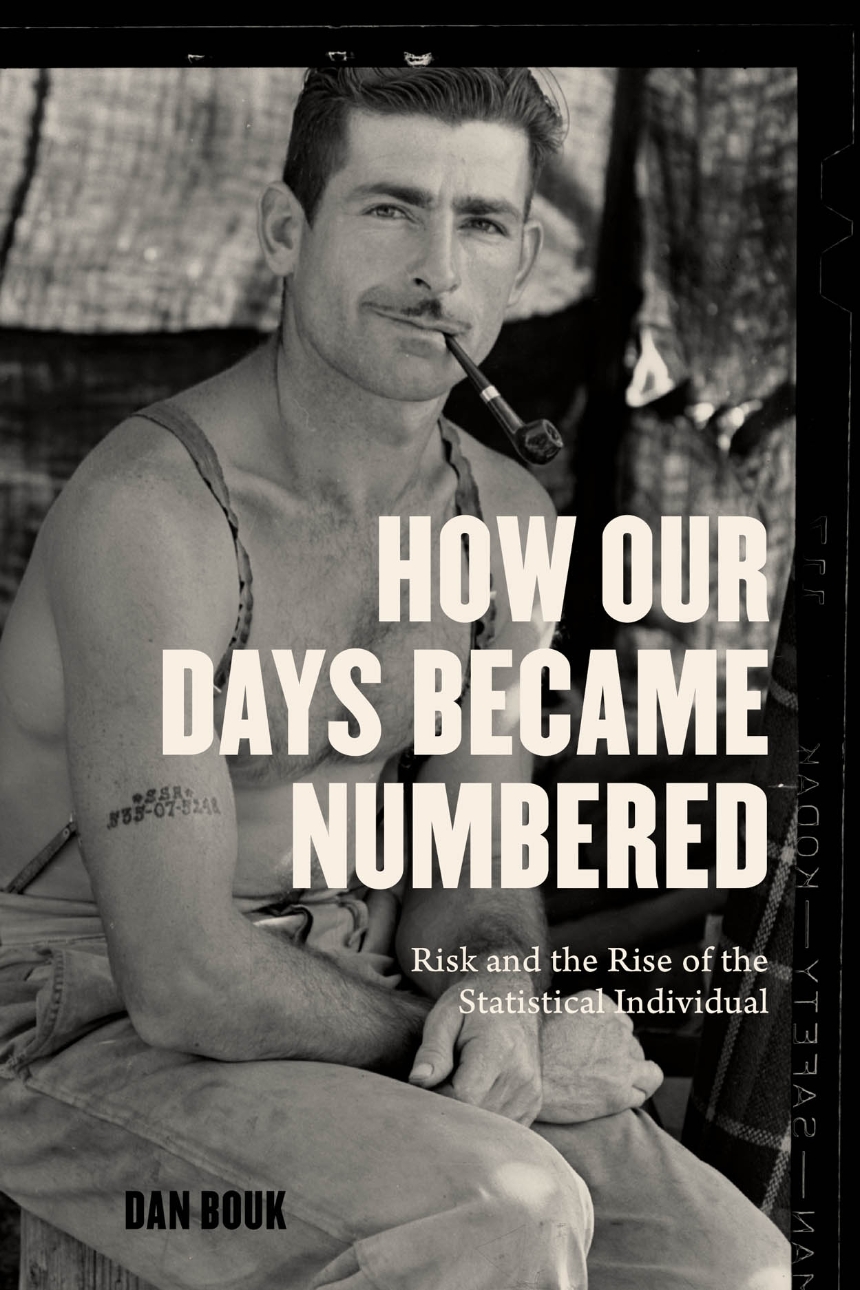How Our Days Became Numbered
Risk and the Rise of the Statistical Individual
9780226564869
9780226259208
How Our Days Became Numbered
Risk and the Rise of the Statistical Individual
Long before the age of "Big Data" or the rise of today’s "self-quantifiers," American capitalism embraced "risk"--and proceeded to number our days. Life insurers led the way, developing numerical practices for measuring individuals and groups, predicting their fates, and intervening in their futures. Emanating from the gilded boardrooms of Lower Manhattan and making their way into drawing rooms and tenement apartments across the nation, these practices soon came to change the futures they purported to divine.
How Our Days Became Numbered tells a story of corporate culture remaking American culture--a story of intellectuals and professionals in and around insurance companies who reimagined Americans’ lives through numbers and taught ordinary Americans to do the same. Making individuals statistical did not happen easily. Legislative battles raged over the propriety of discriminating by race or of smoothing away the effects of capitalism’s fluctuations on individuals. Meanwhile, debates within companies set doctors against actuaries and agents, resulting in elaborate, secretive systems of surveillance and calculation.
Dan Bouk reveals how, in a little over half a century, insurers laid the groundwork for the much-quantified, risk-infused world that we live in today. To understand how the financial world shapes modern bodies, how risk assessments can perpetuate inequalities of race or sex, and how the quantification and claims of risk on each of us continue to grow, we must take seriously the history of those who view our lives as a series of probabilities to be managed.
How Our Days Became Numbered tells a story of corporate culture remaking American culture--a story of intellectuals and professionals in and around insurance companies who reimagined Americans’ lives through numbers and taught ordinary Americans to do the same. Making individuals statistical did not happen easily. Legislative battles raged over the propriety of discriminating by race or of smoothing away the effects of capitalism’s fluctuations on individuals. Meanwhile, debates within companies set doctors against actuaries and agents, resulting in elaborate, secretive systems of surveillance and calculation.
Dan Bouk reveals how, in a little over half a century, insurers laid the groundwork for the much-quantified, risk-infused world that we live in today. To understand how the financial world shapes modern bodies, how risk assessments can perpetuate inequalities of race or sex, and how the quantification and claims of risk on each of us continue to grow, we must take seriously the history of those who view our lives as a series of probabilities to be managed.
328 pages | 21 halftones | 6 x 9 | © 2015
Economics and Business: Economics--History
History: American History
Law and Legal Studies: Legal History
Reviews
Table of Contents
Preface: Strange Books
Chapter 1: Classing
Chapter 2: Fatalizing
Chapter 3: Writing
Chapter 4: Smoothing
Chapter 5: A Modern Conception of Death
Chapter 6: Valuing Lives, in Four Movements
Chapter 7: Failing the Future
Conclusion: Numbering in Layers
Epilogue: The Cards We Carry
Acknowledgments
Bibliography
Index
Chapter 1: Classing
Chapter 2: Fatalizing
Chapter 3: Writing
Chapter 4: Smoothing
Chapter 5: A Modern Conception of Death
Chapter 6: Valuing Lives, in Four Movements
Chapter 7: Failing the Future
Conclusion: Numbering in Layers
Epilogue: The Cards We Carry
Acknowledgments
Bibliography
Index
Awards
Forum for the History of Science in America: Philip J. Pauly Book Prize
Won
The Society for U.S. Intellectual History: S-USIH Annual Book Award
Honorable Mention
